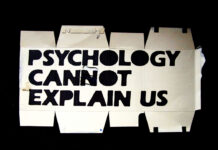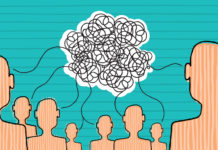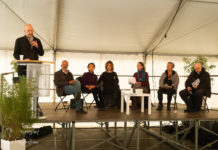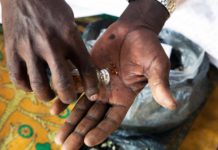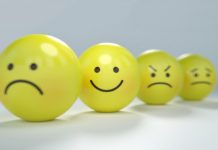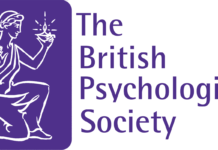The Soteria Project.
During the 1970s, the head of schizophrenia studies at the NIMH, Loren Mosher, conducted an experiment that compared treatment in a homelike environment (called...
A Biopsychosocial Model Beyond the Mind-Body Split
Can a renewed biopsychosocial approach, grounded in an updated philosophy, foster person-centered medicine, and psychiatry?
The Role of Intergenerational Trauma in the Perpetuation of Childhood Maltreatment
A new study examines the role parent borderline pathology plays in the perpetuation of childhood maltreatment.
Recovery: Compromise or Liberation?
The 90s were labeled - rather optimistically - as the ‘decade of recovery.’ More recently, recovery has been placed slap bang central in mental health policy. Is supporting recovery pretty much good common sense? Or is the term being misused to pressure those suffering to behave in certain ways?
Researchers Argue that ‘ADHD’ Doesn’t Meet DSM Definition of a Disorder
New research questions whether the diagnosis of ADHD even meets the criteria for a disorder, as set out in the manuals used by the medical and psychiatric fields.
United Nations Statement Criticizes Medicalization of Depression on World Health Day
"There is a need of a shift in investments in mental health, from focusing on 'chemical imbalances' to focusing on 'power imbalances' and inequalities"
Traditional Healing and Psychosis vs. the Promises of Modern Science
As noted in Anatomy of an Epidemic, the prognosis for someone experiencing psychosis is far better in developing countries than in industrialized countries. Robert Whitaker and others posit that this is due to the treatment models used in the developing world, as well as to debility and chronicity caused by psychiatric drugs themselves. I think it's also important to explore traditional tribal and village based models of helping people experiencing psychosis and examine why they may be effective. Do these traditional societies know something we don't?
An Alternative Perspective on Psychotherapy: It is Not a ‘Cure’
Kev Harding argues against conceptualizations of therapy as a ‘cure’ to an ‘illness’ and instead offers alternative approaches.
Hearing Voices Network Launches Family & Friends Support Group
One of the HVN's fundamental principles is that "the person having these experiences is in the best position to decide or discover what they mean" and thus each person must "not try to speak for" another. The challenge for a family group will likely be for members to move past speaking about our loved ones to find or imagine the space where we ourselves are liberated.
Is Psychosis Natural?
Much of the wild world is now a garden: a rational, controlled space. Yet if we step out of the garden and back into the old growth, I believe the process of psychosis belongs as part of Earth’s “will,” of her wild. The physiological process of psychosis—that of amplified senses—is ecologically purposeful. Not good nor bad, but part of what Nature does trying to grow. Here I share a talk I gave in Boulder, Colorado exploring these themes.
From Self Care to Collective Caring
As a trauma survivor growing up in various adolescent mental health systems, I never learned any useful self-care tools or practices. I was taught that my current coping skills (self-injury, suicidal behavior, illicit drug use) were unacceptable, but not given any ideas as to what to replace them with. No one seemed to want to know much about the early childhood traumas that were driving these behaviors. Instead, I collected an assortment of diagnoses. I was told that I would be forever dependent on mediated relationships with professionals, and an ever-changing combination of pills. The message was that my troubles were chemical in nature and largely beyond my control.
Berlin Manifesto for Humane Psychiatry Released
Changing the mental health and psychosocial support system in Germany requires public debate about the ways our society should help and support people in mental crisis and with chronic mental health problems. We believe the driving force behind all help and support should be humanitarianism and respect for inalienable human rights.
Why Social Isolation Leads to Inflammation
We are wired for community. If we disconnect, our bodies will call us back to the sense of human connection that we are wired for, using the unexpected language of inflammation.
Study Explores Māori Community’s Multifaceted Understanding of “Psychosis”
A new study explores how “psychosis” and “schizophrenia” are viewed within the Māori community in New Zealand.
Rap Embraces Schizophrenia and Owns It
Vanderbilt University psychiatrist Jonathan Metzl, author of The Protest Psychosis, has published a brief history of "schizophrenia" in relation to African American culture in...
We Are Meant to Heal in a Community
In my last blog, I talked about how I was attempting to cope with a “mini-relapse” without using psychiatric drugs. One Sunday morning in the midst of this episode I awoke in a particularly dismal state. I didn’t have a structure planned for the day. And without something to look forward to, both my anxiety and depression increased.
Integrating Indigenous Healing Practices and Psychotherapy for Global Mental Health
As the Global Mental Health Movement attempts to address cross-cultural mental health disparities, a new article encourages integrating traditional healing practices with psychotherapy.
First-Person Accounts of Madness and Global Mental Health: An Interview with Dr. Gail Hornstein
Dr. Gail Hornstein, author of Agnes’s Jacket: A Psychologist’s Search for the Meanings of Madness, discusses the importance of personal narratives and service-user activism in the context of the global mental health movement.
How to Promote Community Inclusion in Mental Health Practice
Practitioners and public leaders identify methods and barriers for integrating those diagnosed with mental health issues into community life.
The History and Effectiveness of Peer Support from 18th-Century France to Today
Yale's Program for Recovery and Community Health will publish in World Psychiatry's June issue a review the history of peer support, from its roots...
Challenging Resilience as a Buzzword: Toward a Contextualized Resilience Model
Researcher Dr. Silke Schwarz highlights how Western psychology’s construction of individual resilience deflects emphasized individual pathology and deflects efforts at structural change.
Why We Need Mental Health Social Entrepreneurship
A mental health social entrepreneurship is a business that uses market principles to maximize benefit instead of maximizing profit. For instance, my business, Wellness...
Inner Fire: Healing and Recovery Without Meds
For five years, I and others worked to create a residential healing community in Brookline, Vermont, where people could recover from debilitating and traumatic life experiences, which often lead to addiction and mental health challenges, without the use of psychotropic medications. We welcomed our first six seekers to a yearlong, therapeutic and farm-based, day program last September, and we now can report on what we have learned during this time.
Psychologists Push For New Approaches to Psychosis: Part 1
Psychologists and people with experience of psychotic symptoms publish a report on new ways of understanding psychosis.
Crash Course in Urban Shamanism
Shamans are the magician spirit healers in tribal, non-technological societies around the world. Anthropologists use the word “shamanism,” from the Tungus people of Siberia, to mean the commonalities between different traditions. Shamans find their calling through a life-threatening initiatory illness or crisis, go into visioning and trance to connect to other realities, shapeshift out of their regular identity to identify with animals, spirits, and even illnesses, and return to the ordinary world to share skills of healing and creativity. Living at the edge of society and defying conventional norms, conduct, and even gender, shamans are respected as a powerful community link to the divine.






